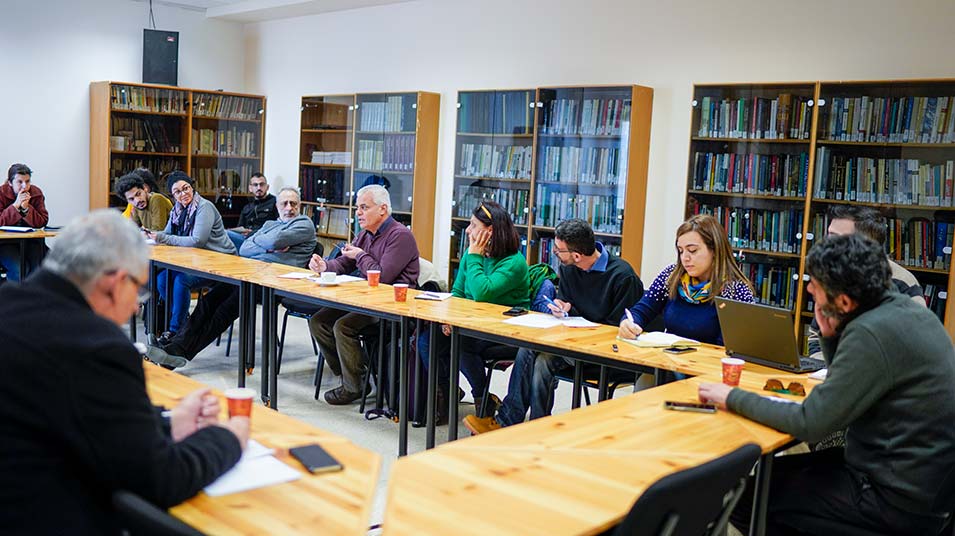Symposium reviews study on Palestinian cooperatives, community work
Birzeit University’s Muwatin Institute for Democracy and Human Rights held a symposium to discuss and evaluate a preliminary study on community work and cooperatives in Palestine on January 27, 2020.
Attending the symposium were representatives from institutions, unions and researchers.
The study, conducted by a team of the institute’s researchers, examines the current state of cooperatives engaged in social and agricultural work in Palestine. It explores how cooperatives respond to poverty and unemployment, provide food and housing, encourage social and political participation, support economic production, and inform individuals of available services. The study seeks to document how cooperatives determine their priorities as they are operating under the dominance of various powers in Palestinian society.
Mudar Kassis, Muwatin’s director, explained that the institute seeks to explore community causes and specific cases by applying theoretical and conceptual frameworks to understand critical and practical issues within the Palestinian context.
The idea of the study, Kassis pointed out, was conceived due to the coexistence of informal learning and volunteer work and the need of dealing with the learning dimension of volunteer work. Kassis highlighted that the cooperative sector suffers from a lack of concrete programs that engage youth and encourage their involvement in community activities or voluntary work. The reasons for this, he said, is the fact that most cooperatives depend mainly on financial aid and donations and are thus more concerned with securing funding than with finding volunteers.
Kassis added that the alienation of today’s youth and their disconnectedness from their communities require that we come up with real solutions that successfully engage youth in society. In order to overcome their isolation and alienation, Kassis suggests to reinforce cooperatives that engage in community and agricultural work. He added that such efforts will promote an environment that, besides fostering integration, also encourages the younger generation to become more independent and self-motivated to work and be productive.
Ala’ Alazzeh, the study’s main researcher, cautioned that in the Palestinian context, it is necessary to differentiate between “settler colonialism” and “ordinary colonialism.” While communities under ordinary colonialism are engaged in both production and consumption processes, settler colonial communities are self-reliant, he pointed out, emphasizing that “Because Palestine is subjugated to settler colonialism, Palestinians are under the extra burden of having to find new strategies for resistance and liberation.”
Alazzeh stressed that Palestinians cannot isolate nor detach themselves from the global changes and transitions that are affecting economic structures. Since 1967, the Palestinian community has witnessed a move towards neoliberalism with strongly negative implications on community work and the cooperative sector in general, he explained.
Describing the currently prevailing economic approaches in Palestine, that are oriented mainly towards making profit, Alazzeh pointed out that that the economic problems Palestinian institutions are faced with oblige them to ask for foreign financial aid or to rely on the private sector. This situation, however, makes it difficult to build independent cooperatives that are not bound by the values, norms and principles of the capital market.







